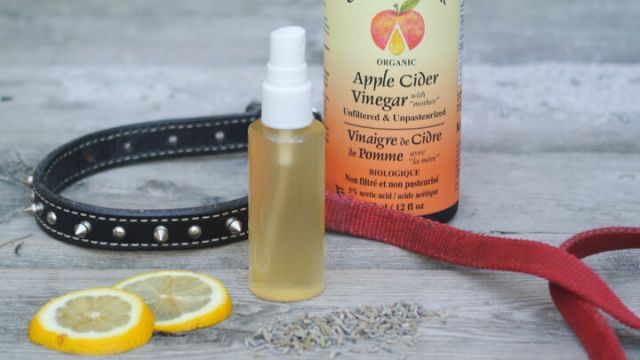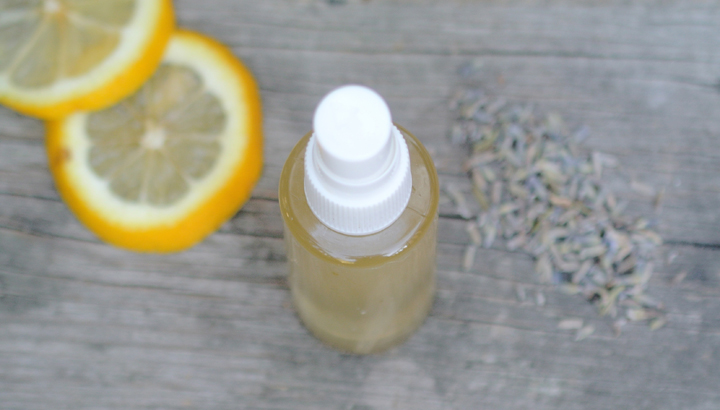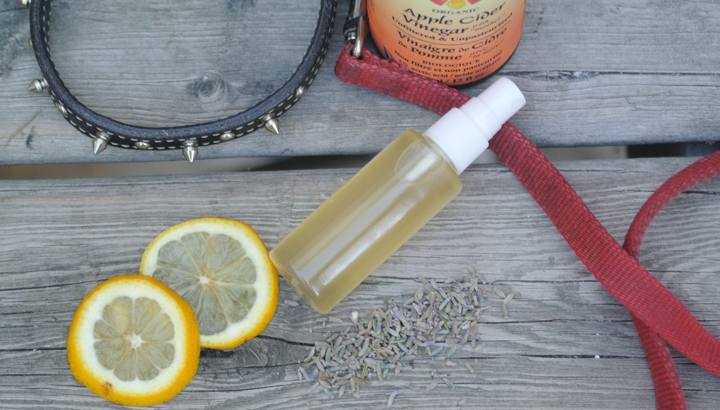
Although you may live in an area where it’s essentially “flea season” all year round, this time of year is especially problematic. Areas with colder seasons often experience flea issues in May right through to the following winter months — with peak rates occurring around September to November.
Luckily, my dog has never had fleas — knock on wood. For a while, he appeared to be a little irritated with his skin. To try and combat the itchiness, I added apple cider vinegar to his bath. During my research, I found that it was also an effective preventative measure against both ticks and fleas.
Why protect your pets against fleas?
No pet owner wants to find out that their cat or dog are being terrorized by fleas — their bites are itchy, irritating and even painful. Here are just some of the ways in which fleas cause potential health complications.
- Allergies — When a flea bites your pet, it leaves a small bump. If your pet is allergic to its saliva, it’s likely that the bite will become swollen and inflamed. If your dog itches the bite, it could open up and increase the risk of infection.
- Diseases — Fleas carry a range of diseases from the plague (yes, the same disease from the Middle Ages) to haemobartonellosis, a condition which targets red blood cells. In some cases, such as cat scratch disease, owners can quickly become affected.
- Tapeworms — If a flea contains tapeworm eggs and your pet ingests it, the eggs can quickly develop into mature tapeworms. Hooking onto the small intestine lining, these nasty parasites essentially “steal” nutrients that pass through the digestive tract.
What does apple cider vinegar do?

Apple cider vinegar is well-known for its range of powerful benefits. From weight loss to improved symptoms of diabetes, research clearly shows that apple cider vinegar is the perfect addition to any health-boosting diet. It’s also an all-natural remedy that can be shared with your family cat or dog.
Apple cider vinegar can be effectively administered both internally and externally. I often add the tiniest splash into my dog’s water, especially during flu season, ensuring that his immune system is strong. Just like humans, this will help the body kill off bacteria and viruses before any symptoms have a chance to develop.
In this case, we’re going to focus on external methods — either a diluted spray bottle applied to the coat or an apple cider vinegar bath. Not only does it act as a natural flea and tick repellent, but it can also help clean your pet’s ears and relieve certain skin conditions. With regular use, you can reduce the risk of an unwanted flea infestation.
Apple cider vinegar is both sour and acidic — something which fleas avoid. Remember, this remedy won’t necessarily kill fleas, but when used in conjunction with other natural methods, you can achieve optimal results. Of course, an added bonus is that you’ll avoid chemical flea sprays that are toxic to both you, your pet and the environment.
All-Natural Flea Repellent Recipe

For this recipe, you can keep it as simple as apple cider vinegar and water, however, I like to add a few drops of lavender and lemon essential oil. Not only does this offer a more pleasant smell, but these two essential oils also act as effective repellents that will deter nasty little fleas even further.
Ingredients
- 1:1 ratio of apple cider vinegar and water
- 3 drops lemon essential oil (optional)
- 3 drops lavender essential oil (optional)
Equipment
- Spray bottle
Instructions
1. Simply combine all ingredients in a spray bottle and apply to your dog or cat daily. You can also spray their bed between washes to help deter fleas and ticks from finding a home in yours.
— Krista Hillis

